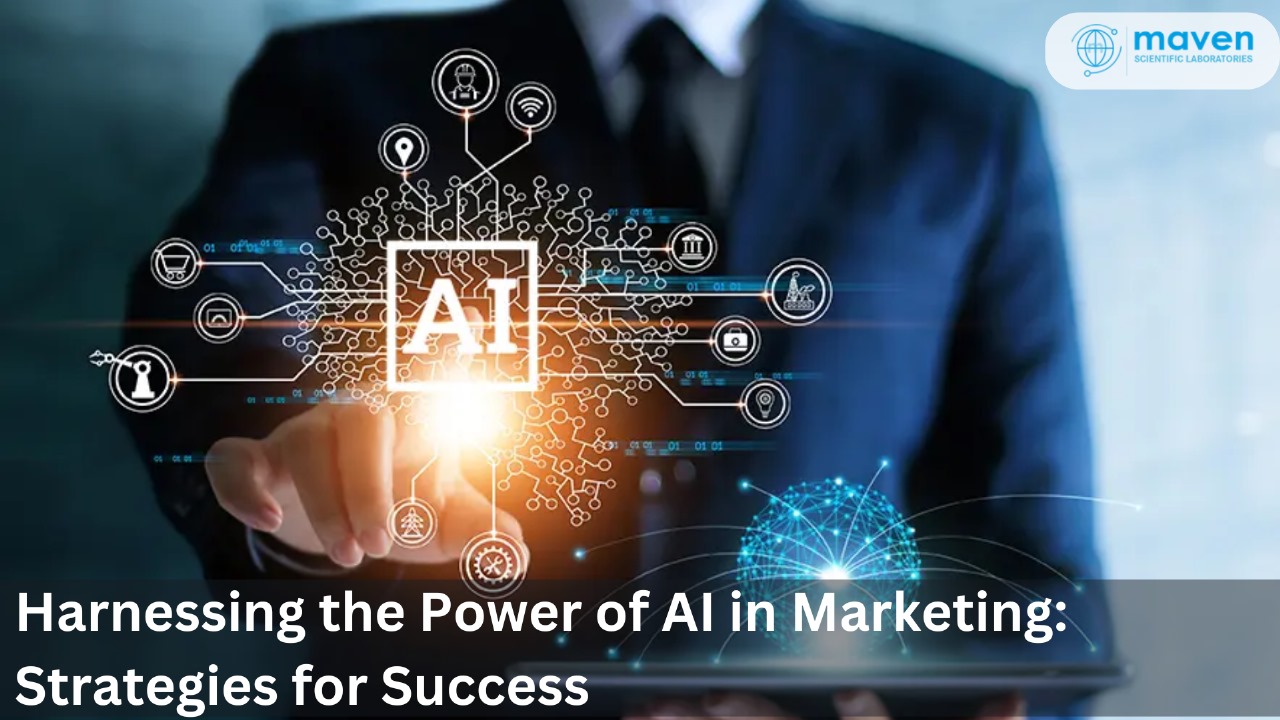
Harnessing The Power Of AI In Marketing: Strategies For Success
What is AI Marketing?
AI marketing refers to the application of artificial intelligence technologies in the marketing process to enhance effectiveness and efficiency. By utilizing tools like machine learning (ML), deep learning, and natural language processing (NLP), AI marketing automates tasks, analyzes large data sets, and identifies patterns or trends. This enables marketing teams to engage with customers more quickly and on a personal level. By automating tasks such as email marketing and customer service, marketers can shift their focus toward developing more strategic and creative campaigns.
How to Incorporate AI into Your Marketing Strategy
Integrating AI into your marketing strategy can significantly extend your brand’s reach, improve engagement, and increase conversion rates. Here’s how to make the most of AI in your marketing efforts:
- Content Creation: AI-powered platforms can generate high-quality blog posts, social media updates, and articles while maintaining a consistent brand tone and saving time.
- Personalization: AI allows for the analysis of customer data to offer personalized recommendations, improving customer satisfaction.
- Ad Optimization: By analyzing past performance data, AI can predict which ads will perform best and help optimize campaigns for better relevance and ROI.
- Creative Idea Generation: AI tools can assist in brainstorming ideas for blogs, headlines, and social media posts, providing fresh insights for your team.
- AI-Powered Chatbots: These tools can offer personalized customer support and product recommendations, enhancing user experience and fostering brand loyalty.
- Marketing Automation: Automate routine tasks like email marketing and customer inquiry handling, freeing up your team for higher-level strategic tasks.
Steps to Implement an AI-Driven Marketing Strategy in Your Organization
For effective AI integration in your marketing efforts, follow these steps:
- Define Goals and KPIs: Establish clear objectives for your AI strategy, along with key performance indicators (KPIs) to measure success.
- Analyze Workflows: Pinpoint areas in your current processes where AI can help streamline tasks, such as bottlenecks or repetitive work.
- Select the Right AI Tools: Choose AI solutions that align with your specific business goals and integrate easily into your existing systems.
- Train Your Team: Offer training to ensure your team understands how to effectively use AI tools.
- Focus on Data Privacy: Implement strong data privacy measures to protect customer information and comply with industry regulations.
- Ensure Data Quality: Clean, accurate, and consistent data is crucial for optimal AI performance.
- Monitor and Adjust: Regularly evaluate the effectiveness of your AI strategy and make adjustments as needed.
- Encourage Continuous Learning: Foster a learning culture within your team to stay updated on the latest AI developments and capabilities.
Benefits of AI Marketing Strategies
AI marketing provides several advantages that can elevate your marketing efforts:
- Increased Efficiency: AI accelerates content production and automates mundane tasks, freeing teams to focus on strategic and creative work.
- Personalized Experiences: AI makes it possible to deliver tailored marketing messages based on customer behavior, leading to better engagement and satisfaction.
- Campaign Optimization: AI tools can help you optimize ad spend and analyze performance to enhance future campaigns.
- Competitive Edge: AI solutions enable businesses to scale cost-effectively and improve customer engagement at scale.
- Predictive Analytics: AI can forecast future customer behavior, allowing marketers to adjust strategies proactively.
- Enhanced Customer Support: AI-powered chatbots ensure 24/7 customer service, increasing customer trust and satisfaction.
Types of AI Marketing Technologies
Several AI-driven technologies enhance marketing strategies, each with its unique benefits:
- Machine Learning (ML): Enables systems to learn from customer data and behaviors, helping marketers predict trends and optimize campaigns.
- Predictive Analytics: Uses historical data to predict future consumer behavior, allowing for more accurate marketing strategies.
- Personalization: Machine learning can tailor marketing content to individual customer preferences.
- Generative AI: Helps create original marketing content, such as product recommendations and personalized messages.
- Computer Vision: Analyzes visual data, such as images and videos, to provide insights that can influence marketing decisions.
- Natural Language Processing (NLP): Allows AI to understand and interpret human language, enhancing tools like chatbots and improving customer interaction.
Conclusion
AI is revolutionizing the way businesses connect with their customers by automating tasks, personalizing interactions, and providing deep insights. From creating content to optimizing ad campaigns and delivering real-time customer service, AI offers companies a competitive advantage in today’s fast-paced digital landscape. As AI technologies continue to evolve, those who embrace these innovations will find themselves better equipped to drive customer engagement, improve satisfaction, and achieve sustained growth.
Integrating AI into your marketing strategy today can help streamline operations, improve performance, and offer a more personalized experience to your customers. Don’t wait—start harnessing the power of AI to shape a marketing strategy that’s ready for the future.







